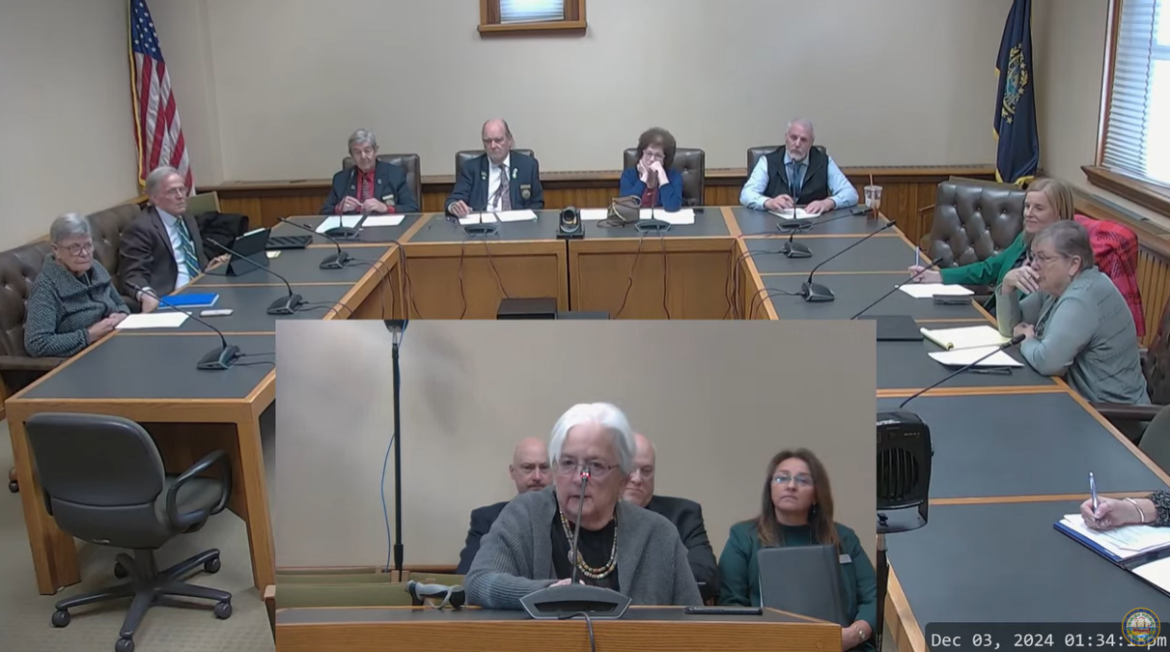By KATHARINE WEBSTER, InDepthNH.org
On Tuesday, the last day of the current state Legislature, a joint committee approved the plan for an audit of the Doorway program, which aims to connect people suffering from substance abuse disorders with services.
The vote was 7-1. Rep. Keith Erf, R-Weare, said he thought the Legislative Performance Audit and Oversight Committee should hold off on approving an audit of the federally funded program until the new Legislature is seated and committees formed.
“We don’t need to approve it today,” Erf said. “We don’t know if the new committee will approve it.”
However, other committee members noted that they had approved the audit months ago, and that Tuesday’s hearing was simply intended to address the scope of the proposed audit.
“Whether it’s federal or state funds, it is a state program and it’s state citizens,” said Rep. Lucy Weber, D-Walpole. “If we’re spending $76 million ineffectively, I think we need to know that … and that doesn’t depend on where the funds come from.”
The Doorway program was established by the governor and Executive Council in 2019 under a federal Opioid Response Grant to connect people with treatment and other services. It is entirely funded by the federal government and has cost $76 million over the past three fiscal years, according to the state Legislative Budget Assistant (LBA).
The program welcomes people for initial treatment and referral to addiction treatment services through “doorways” at nine hospitals around the state – in Berlin, Concord, Dover, Keene, Laconia, Lebanon, Littleton, Manchester and Nashua – and through a 24/7 telephone hotline.
“In 2018, when the Opioid Response Grant came to New Hampshire … resoundingly, the question that needed to be answered was, ‘When people are ready for services, where should they go?’” Jennifer Sabin, opioid response director for the state Department of Health and Human Services, said at the hearing.
The Doorway program served 10,076 people in fiscal 2022 and 11,298 people in fiscal 2023, according to the Audit Division of the LBA. Nearly half of those who received treatment sought help for opioid use disorder, 27% sought treatment for alcoholism and 15% sought help for methamphetamine or cocaine use.
In addition to evaluation, treatment and referral services, the Doorway program distributes naloxone, a medication that can reverse overdoses. It also pays for temporary holding while people are waiting to be admitted to in-patient treatment, money for transportation to access treatment, and recovery housing, workforce opportunities, training and education.
John Clinch, senior audit manager for the LBA, and Sabin answered questions from the committee, including whether they had data on outcomes beyond an initial study by an external auditor.
“Is there anything that tells us anything about the outcomes for people that use the program?” asked state Sen. Rebecca Whitley, D-Hopkinton. “Is this making a difference? It’s $76 million, and there’s stuff about wait times to access services, but are they getting those services and is it helping in their recoveries?”
Sabin said that while it’s hard to evaluate how individuals with private insurance are faring, an internal study looked at several hundred Medicaid beneficiaries and found improvements after six months.
“The answer is yes. We could see symptomology at intake, Medicaid services they’re receiving, fewer symptoms after six months and improvements in their relationships,” employment, housing status and other measures, Sabin said.
Rep. Kenneth Weyler, R-Kingston, asked if the state auditors could track whether people using the Doorway program had relapsed.
Sabin said that relapses are to be expected, as with any chronic disease. She also said that medical privacy laws can make it hard to track individual progress, especially when people are homeless and accessing Doorway services at different locations.
“We do our best to de-duplicate, but we do have a ‘Come to the Doorway early and come to the Doorway often’ approach,” she said. “We’re not trying to limit services.”
In other business, the committee heard from state Rep. Marjorie Smith, D-Durham, about the slow progress of an audit of the state Commission for Human Rights.
“There have been three terms since questions arose about the performance of the Human Rights Commission,” Smith said. “They were not following the rules; they were not following the law.”
If the commission continues to delay in providing information to the LBA, “something has to be done” to ensure it cooperates, Smith said.
“I know that sounds harsh, and it is harsh, but there are people out there literally whose lives depend on the work of the Human Rights Commission,” she said.
State Sen. Cindy Rosenwald, D-Nashua, who chairs the Audit and Oversight Committee, noted that the commission’s executive director is on leave and the assistant executive director has resigned, delaying the audit. However, the LBA hopes to present a final draft of the audit to the joint Fiscal Committee in February, she said.
Rosenwald also noted that there have been delays in finalizing two audits of the state Department of Education: one on state oversight of special education services and the other involving the Education Freedom Account Program, popularly known as the school voucher program.
The second audit has been particularly contentious, as the department claims that the Children’s Scholarship Fund, the private contractor that manages the vouchers, does not have to disclose records showing how the voucher funding is spent. Legislators say that the records should be public because they involve public spending and taxpayer dollars.





